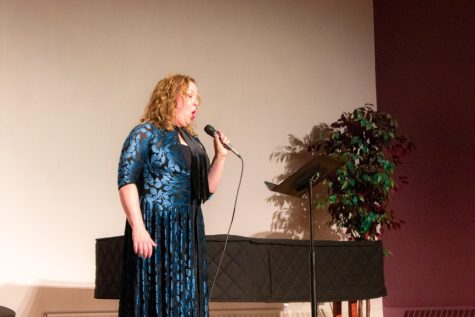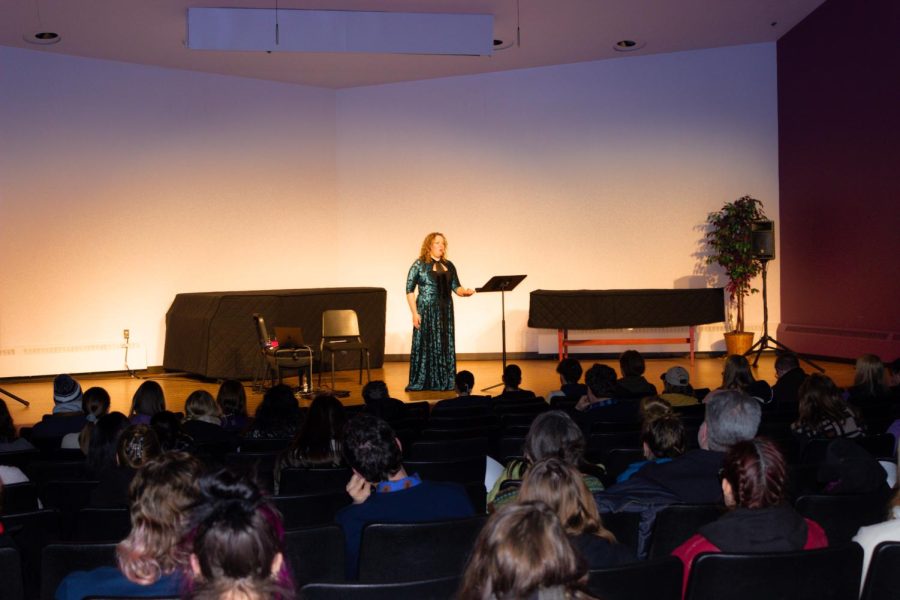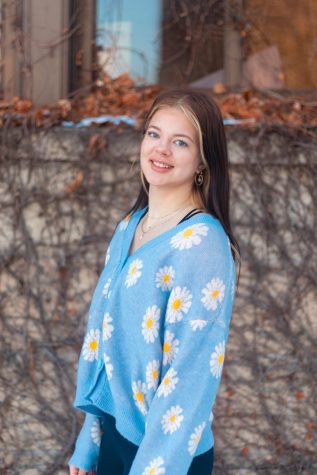Professor performs experimental electroacoustic music
Dr. Liz Pearse performed an electroacoustic concert for Winona State University on Jan. 31, 2023 in the DuFresne Performing Arts Center Recital Hall. Her pieces included sirens, drums, synth, computer noises, and more throughout the night
February 8, 2023
“It’s kind of a lottery of sorts, like the little box of chocolates—one of them might be an awesome salted caramel, and another one is that weird orange cream stuff that nobody wants,” Pearse said when asked about what drew her to electroacoustic music.
Dr. Liz Pearse is a member of the voice faculty at Winona State University. Her recital, “I offer this as truth of Magic,” took place on Jan. 31, 2023 in the DuFresne Performing Arts Center Recital Hall. Pearse’s recital featured a variety of electroacoustic pieces.
“Electroacoustic means that somebody has created sounds using synthesis or computer aided means, and I am as an acoustic performer, performing with that as an accompaniment,” Pearse said.
Various sounds were incorporated in each of the pieces. Sirens, drums, synth, computer noises, explosions, mouth sounds and humming were just a few of the noises used throughout the performance.
Electroacoustic music is definitely not for everyone. It does not follow the typical structure we see within traditional music, such as Bach, The Beatles or even Mariah Carey.

“They don’t have to like the piece—I’m curious, if they didn’t like it, why?” Pearse said.
Pearse continued, “That’s all I want is for somebody to think about it and have an opinion,”
Rayna Bushey, a fourth-year student at Winona State University, offered her opinion on the recital.
“It was definitely different,” Bushey said.
“It wasn’t anything I’d ever heard before, or anything I could possibly have come up with. I had no idea there were so many composers and performers for this kind of thing,” Bushey continued.
Electroacoustic music is certainly not something you can just stumble upon.
Pearse’s interest in electroacoustic music peaked when she joined a quartet ensemble where they had to perform what she described as a “horror movie soundtrack” type piece.
“Every time we perform it, about five minutes in—one row of people gets uncomfortable and then they leave,” Pearse said.
Pearse continued by saying, “something broke in her brain” when she first heard the piece, and that many of the audience members received the same revelation.
“My sense of time is different now—and I think I love this music,” Pearse said.
The recital featured nine very different pieces, some with choreography, some in German and some with no words at all. David Dies, the creator of the piece “Sorda” was in the audience for Pearse’s performance of the song. Elise Roy’s piece, “Trying to talk with a man,” also had its world premiere at Pearse’s recital.















































